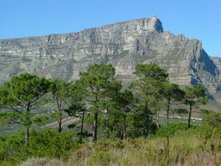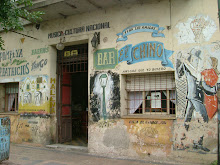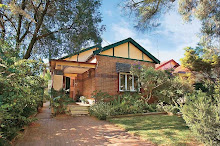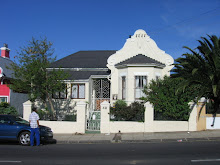 |
| Jethro's take on his mummy: he took this 28th October 2013 |
Nine years ago, to the day, I arrived in Australia. It was a profound feeling. I was 41, and my life was starting over.
I remember Francis meeting me at the airport and feeling particularly awkward. I remember thinking that nothing could make him understand what was going on inside me, and that I wasn't going to try to explain. I was just going to get on with it.
 I noticed that so many people leaving South Africa were running from something, and I wasn't. I was going TO something. I was going to a new life with a man I had met in Spain, learning Spanish. I was seriously starting again. Life was changing:
I noticed that so many people leaving South Africa were running from something, and I wasn't. I was going TO something. I was going to a new life with a man I had met in Spain, learning Spanish. I was seriously starting again. Life was changing:- from being single to being part of a couple
- from being well known to completely unknown.
- from a life of dance and consulting to a life of little dance and no permission to work.
- from years of experience to not being recognised for any experience.
 I had left my home with four bedrooms plus a flat for a shared room in a shared unit. I had left being a landlady for being a partner of a renter. I had left a huge circle of family and friends and colleagues for a country where I knew one person well, two more people quite well, and about ten people vaguely. I had left the mountain and sea for the suburbs.
I had left my home with four bedrooms plus a flat for a shared room in a shared unit. I had left being a landlady for being a partner of a renter. I had left a huge circle of family and friends and colleagues for a country where I knew one person well, two more people quite well, and about ten people vaguely. I had left the mountain and sea for the suburbs. Instead of a house filled with belongings I had just one suitcase with my clothes and my cutlery (!). Instead of a car I was on foot.
 Yes this was still 34 degrees South. Just not Cape Town. It was Sydney.
Yes this was still 34 degrees South. Just not Cape Town. It was Sydney.Some of this was apparent on the first day, and some only became apparent over time. Slowly but surely it sank in that I'd really taken this enormous step at 41. It was my sister-in-law's birthday and I wasn't there to celebrate it. Today, nine years later, it's her birthday again and I'm not there to celebrate it. But I am celebrating, instead, a nine-year journey to date.
I woke this morning thinking about the highlight of each year:
2004: Discovering the tango, flamenco, latino dance and music scene in Sydney and my first New Year's Eve fireworks over the Bridge and Opera House
2005: A five day trip, alone and camping, to the heart-stopping beauty of New Zealand's South Island; buying our home in Heighway Avenue in Ashfield and joining Sing Australia
2006: Our wedding; visitors throughout that year from South Africa
2007: Being allowed to work. Restarting Making Things Work. Dancing Tango at Darling Harbour.
2008: Magical trip to Europe with Francis
2009: Jethro was born. Becoming a mum at 46. Starting to work with social enterprises in earnest.
2010: Jethro's baby naming ceremony. Becoming an Ausralian Citizen. Taking Jethro to South Africa to meet the family.
2011: Marjorie's visit to Sydney; An African drumming course
2012: Moving to Oatley to the green and the blue of nature once again
2013: Marjorie in Sydney again. Embarking on the Key Person of Influence course and restarting my work as Beyond Win-Win.
 And then, of course, there have been the annual highlights - Jewish high festivals on the North Short and the Eastern Suburbs, re-acquainting with cousins I knew as a child in South Africa, annual Christmas celebrations (the street party in Heighway Avenue, the Mother's Group party and the Chilean-Iranian-South African-Australian party each year), Chinese New Year and all the diversity type celebrations in Sydney. And lots, lots more.
And then, of course, there have been the annual highlights - Jewish high festivals on the North Short and the Eastern Suburbs, re-acquainting with cousins I knew as a child in South Africa, annual Christmas celebrations (the street party in Heighway Avenue, the Mother's Group party and the Chilean-Iranian-South African-Australian party each year), Chinese New Year and all the diversity type celebrations in Sydney. And lots, lots more. Today I am celebrating a long journey that, in the scheme of things, is only just starting. It's amazing, though, that I've lived in Australian almost one fifth of my life. Just one more year and it will be a decade. Hah.





































